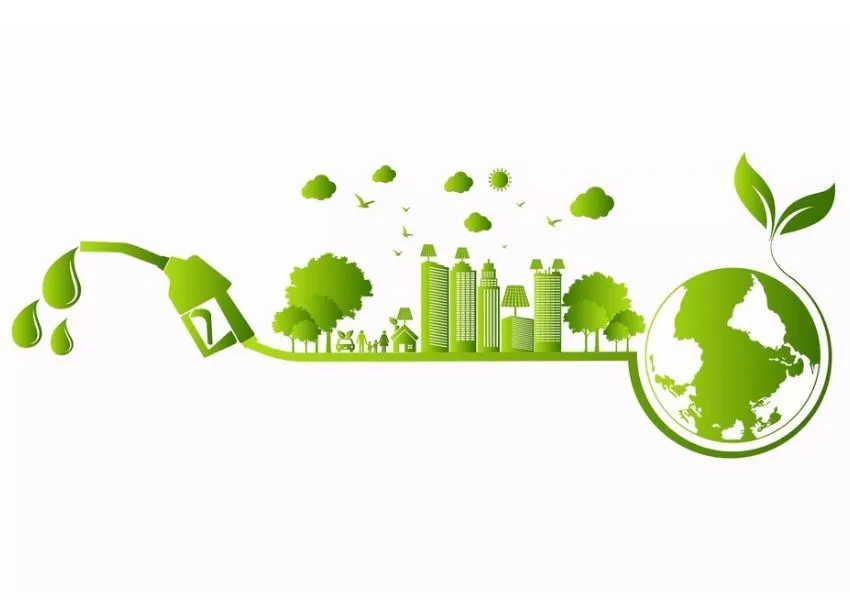
26 May Why the Social Impact of Biofuel Supply Chain Matters for a Greener Tomorrow?
At Quality Bio, sustainability isn’t just a word — it’s a way of life. As a leading biomass briquettes and pellets manufacturer in India, we take pride not only in the fuel we produce but in the positive social impact of biofuel supply chain we help drive across communities. It’s time the world recognized that clean energy can be a powerful force for social good.
Let’s dive deep into why the social impact of biofuel supply chain isn’t just beneficial for the environment but for society at large.

What is the Social Impact of Biofuel Supply Chain?
The social impact of biofuel supply chain refers to how the production, processing, and distribution of biofuels influence people, particularly in rural and underdeveloped areas. Unlike fossil fuels, biomass fuels are decentralized, local, and inclusive — involving local communities at almost every stage.
At Quality Bio, we witness every day how our work contributes to better livelihoods, empowered women, educated children, and healthier families.
It’s More Than Energy: It’s Empowerment
- Inclusion of marginal farmers in sourcing biomass
- Upskilling of rural youth in energy technologies
- Job creation and consistent income generation
- Improved infrastructure in rural areas
Benefits of Biofuel on Rural Communities
We are deeply rooted in India’s villages, and the benefits of biofuel on rural communities are the reason we wake up every morning with purpose.
Biofuel production, especially biomass briquettes and pellets, provides an economic opportunity for rural India to thrive.
Key Benefits:
- Farmers earn additional income by selling agricultural waste
- Cleaner air due to reduction in crop burning
- Job opportunities in logistics and operations
- Creation of community biomass hubs and cooperatives
At Quality Bio, we’ve collaborated with farmers across Haryana and surrounding states to set up structured biomass collection programs, reducing waste and increasing prosperity.
Employment in Biofuel Industry: Creating Jobs with Purpose
The employment in biofuel industry is not just about numbers. It’s about meaningful, sustained, and skilled work that transforms lives.
Unlike fossil fuel industries that rely heavily on automation, the biofuel supply chain depends on human hands and hearts.
Our Contributions at Quality Bio:
- Hiring thousands in rural and semi-urban areas
- Training women for quality control and packaging
- Developing local entrepreneurs through biomass franchises
- Engaging with ITIs and vocational institutes for youth training
This is the social impact of biofuel supply chain in action — livelihoods made stronger, futures made brighter.
Bioenergy and Community Development Go Hand-in-Hand
The connection between bioenergy and community development is real and measurable. At Quality Bio, we don’t just set up plants — we build ecosystems that support entire communities.
Our Efforts to Foster Development:
- Building access roads for remote villages
- Supporting local health and sanitation initiatives
- Investing in education for children of plant workers
- Promoting local leadership and women participation
The community sees us not just as a company but as a partner in progress. That’s the power of bioenergy and community development when aligned with intention.
Social Sustainability in Renewable Energy: Our Core Commitment
At Quality Bio, we define our mission by the values of social sustainability in renewable energy. Producing eco-friendly fuel is only one part of our promise; the other part is ensuring fairness, inclusivity, and safety for every individual in the chain.
Our Core Pillars:
- Fair trade practices with suppliers
- Zero tolerance on child labor
- Equitable wages and safe working conditions
- Continuous education and health camps for workers
For us, social sustainability in renewable energy is non-negotiable. We grow only when our people grow with us.
The Bigger Picture: A Greener and Fairer Future
The social impact of biofuel supply chain is often overlooked in the energy conversation. But the truth is, biofuels have the power to solve more than environmental problems — they can address inequality, unemployment, and rural distress.
At Quality Bio, we’re proud to lead this transformation. Our biomass solutions don’t just light up homes; they light up lives. We envision a future where the social impact of biofuel supply chain is central to every energy strategy — because sustainability must begin with people.
For more information you can visit our Website or Youtube channel.
Frequently Asked Questions (FAQ’s) from Quality Bio
1. What is the social impact of biofuel supply chain on rural employment?
–> The social impact of biofuel supply chain includes significant rural employment generation. By involving local communities in sourcing, processing, and distribution, biofuel operations create sustainable job opportunities and boost local economies.
2. How do the benefits of biofuel on rural communities influence education and health?
–> The benefits of biofuel on rural communities extend to education and health by offering better incomes, reducing pollution from stubble burning, and enabling investments in schools, clinics, and sanitation by both families and companies like Quality Bio.
3. What role does employment in biofuel industry play in women empowerment?
–> The employment in biofuel industry has opened doors for women in rural areas by creating roles in quality checks, admin work, and cooperatives. At Quality Bio, we actively train and hire women, promoting gender equality and economic inclusion.
4. How can bioenergy and community development lead to long-term sustainability?
–> When bioenergy and community development go hand-in-hand, communities are empowered with better infrastructure, education, and healthcare. This integration ensures that development is not only green but also equitable.
5. Why is social sustainability in renewable energy critical for future energy strategies?
–> Social sustainability in renewable energy ensures that clean energy solutions don’t exploit labor or neglect communities. For Quality Bio, integrating social welfare into our supply chain makes our mission truly sustainable and future-ready.



No Comments